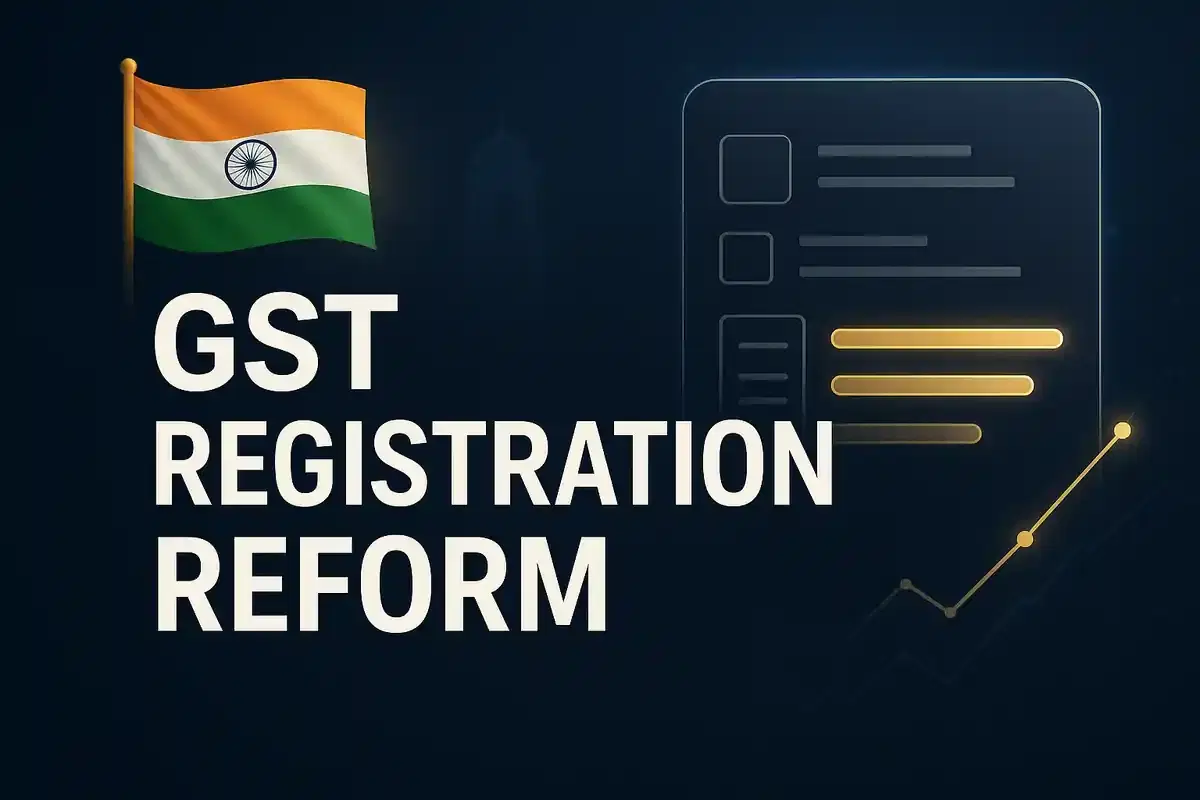India to Roll Out Revamped GST Registration System by November 1, 2025
Economy
|
28th October 2025, 9:23 AM

▶
Short Description :
Detailed Coverage :
India is set to implement a significantly revamped Goods and Services Tax (GST) registration system starting November 1, 2025. This initiative is a key component of the ongoing GST 2.0 reforms, designed to enhance efficiency and ease of doing business.
The core of the new system involves automated approvals for applicants identified as low-risk. This category includes businesses with a monthly output tax liability below ₹2.5 lakh. For these eligible applicants, the registration process is anticipated to be completed within just three working days. This streamlined approach is expected to cover approximately 96% of all new GST registrations, significantly reducing the bottlenecks associated with manual verification.
Impact: This reform will make it much easier and faster for most new businesses to get registered under GST. It simplifies compliance, especially for small enterprises, and helps tax authorities allocate resources more effectively by focusing scrutiny on potentially fraudulent or high-risk cases identified through advanced data analysis and intelligence.
Rating: 8/10
Definitions: GST 2.0 reforms: These are a series of proposed or ongoing enhancements to India's Goods and Services Tax system aimed at simplification, efficiency, and better compliance. Output tax liability: This refers to the total GST payable by a taxpayer on their outward supplies (sales) of goods and services. Data analytics: The process of examining large datasets to uncover patterns, trends, and insights, often used here to identify high-risk taxpayers. Intelligence inputs: Information gathered by tax authorities from various sources to assess risk and detect potential non-compliance or fraud. Risk-based audits: An audit approach where taxpayers are selected for examination based on their perceived risk profile, rather than random selection. GSTN platform: Goods and Services Tax Network, the IT infrastructure backbone for the GST system in India, used for registration, filing returns, and processing payments.